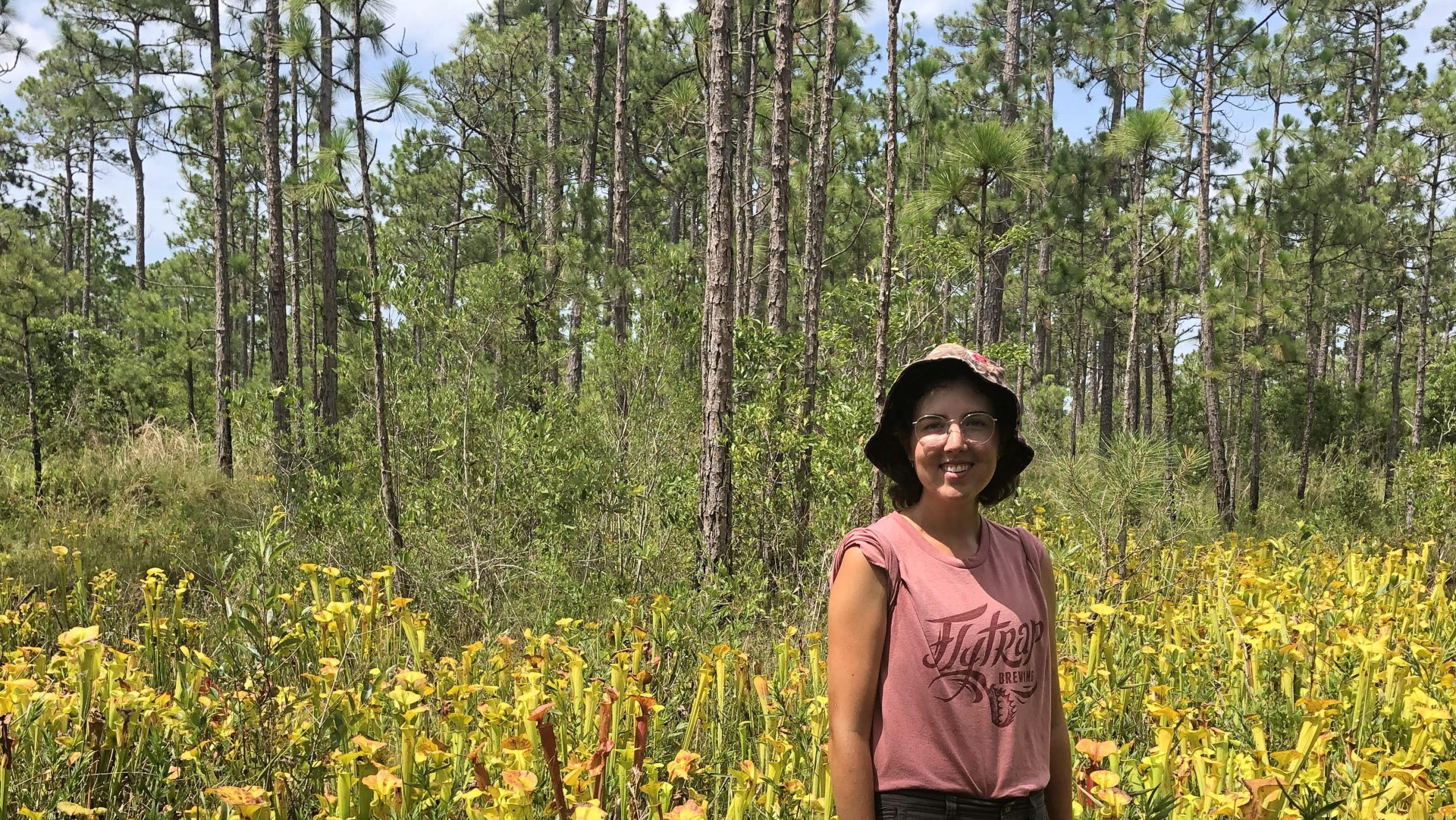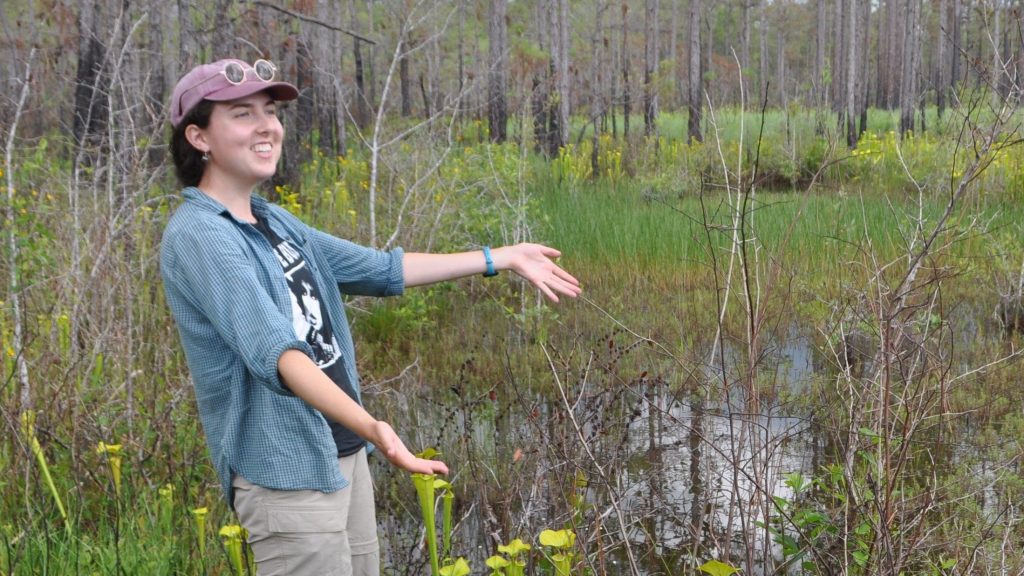Researcher Spotlight – Laura Hamon

2018-19 Global Change Fellow
PhD Student, Department of Applied Ecology
Advisor: Dr. Becky Iwrin
Every year the Southeast Climate Adaptation Science Center funds a multi-disciplinary cohort of Global Change Fellows representing colleges across NC State University. Here are some highlights about 2018-19 Fellow, Laura Hamon, and the applied research she’s conducting.
About You
What do you study?
I study the pollination ecology of Venus flytrap. I am interested in finding out how important pollination is for its reproduction. I also plan to explore how this plant is so good at not eating its own pollinators.
What (or who) influenced you to go into this field of study?
Prior to starting at NC State, I worked on a project that collects butterfly observations. Many butterflies rely on just a few species of plant for survival. As I got better at identifying native plants, I became increasingly enamored with the “plant” part of “plant-insect interactions”. I knew going into graduate school that I wanted my research to have a plant conservation component.
What do you think is the most pressing issue related to global change?
Biodiversity loss is perhaps the most pressing issue related to global change.
What is your dream job?
I would love to continue thinking about rare plants and their pollinators, either in research or as part of a natural resource agency.
About Your Research

What results are you finding?
Venus flytrap is pollen-limited, which means that it depends on its pollinators for increased seed set. I also found evidence to suggest that Venus flytrap needs a mobile pollen vector – i.e., a pollinator – to produce any seed at all. Together, these indicate that Venus flytrap may be highly reliant on its pollinators for overall reproduction.
Who will benefit from your research?
My research will be useful to natural resource agencies and land managers.
How can your research be used to inform management decisions?
If inadequate pollination is a limit to Venus flytrap reproduction, then a complete and effective management plan for this plant should also account for pollinator health.
How would you describe your research to a 3rd grader?
I study how insects are important to Venus flytrap, and not just as food!
About Your Global Change Fellow Experience
How do you expect the SE CASC Global Change Fellows Program to impact you and your work?
My time as a Global Change Fellow helped me realize how my research connects with other disciplines, and how we navigate a changing planet. It was particularly impactful to learn how to identify and collaborate with stakeholders.
- Categories:
